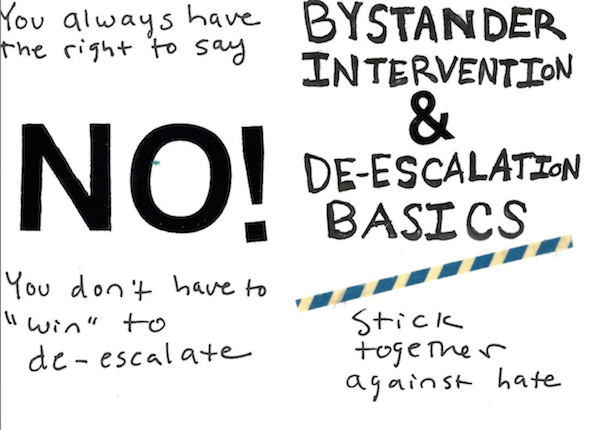

 Move up, move back
Move up, move back
 What Zines Are Like
What Zines Are LikeSkim a zine for two minutes and then switch, for four rounds. You will not be able to read these zines in their entirety.
[Content: curse words, sexuality, nudity, violence]
In breakout rooms discuss for 5 minutes:
Group share.
 A zine, short for fanzine or magazine, is a DIY* subculture self-publication, usually made on paper and reproduced with a photocopier or printer. Zine creators are often motivated by a desire to share knowledge or experience with people in marginalized or otherwise less-empowered communities.
A zine, short for fanzine or magazine, is a DIY* subculture self-publication, usually made on paper and reproduced with a photocopier or printer. Zine creators are often motivated by a desire to share knowledge or experience with people in marginalized or otherwise less-empowered communities.